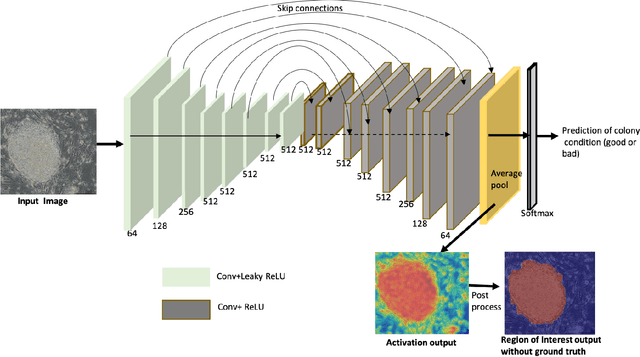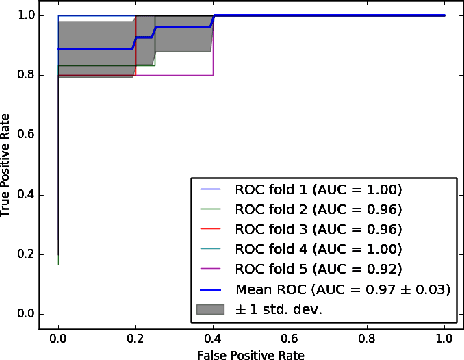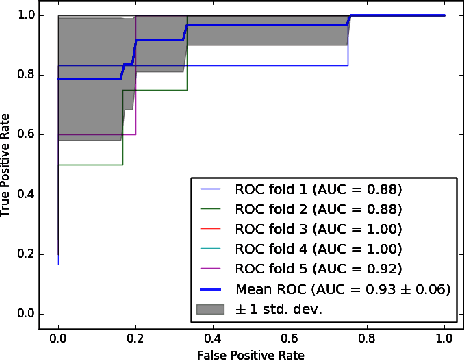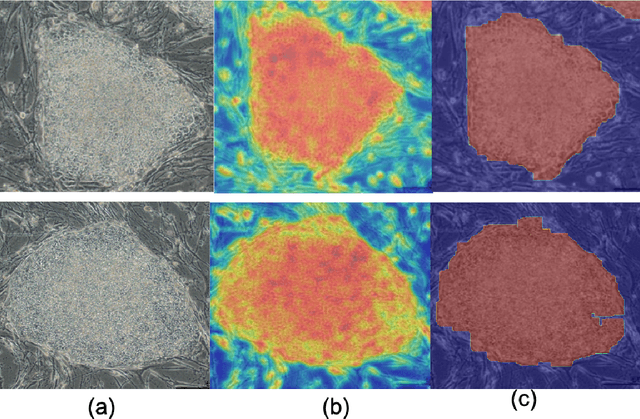Attention-effective multiple instance learning on weakly stem cell colony segmentation
Paper and Code
Mar 09, 2022



The detection of induced pluripotent stem cell (iPSC) colonies often needs the precise extraction of the colony features. However, existing computerized systems relied on segmentation of contours by preprocessing for classifying the colony conditions were task-extensive. To maximize the efficiency in categorizing colony conditions, we propose a multiple instance learning (MIL) in weakly supervised settings. It is designed in a single model to produce weak segmentation and classification of colonies without using finely labeled samples. As a single model, we employ a U-net-like convolution neural network (CNN) to train on binary image-level labels for MIL colonies classification. Furthermore, to specify the object of interest we used a simple post-processing method. The proposed approach is compared over conventional methods using five-fold cross-validation and receiver operating characteristic (ROC) curve. The maximum accuracy of the MIL-net is 95%, which is 15 % higher than the conventional methods. Furthermore, the ability to interpret the location of the iPSC colonies based on the image level label without using a pixel-wise ground truth image is more appealing and cost-effective in colony condition recognition.
 Add to Chrome
Add to Chrome Add to Firefox
Add to Firefox Add to Edge
Add to Edge